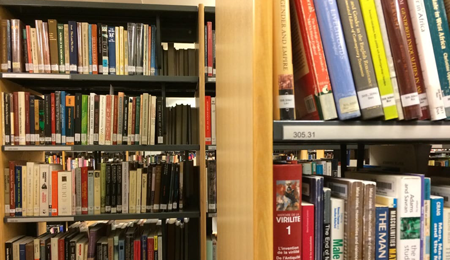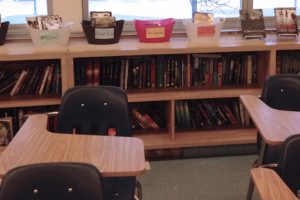Have you ever thrown your hat into the publishing ring? If so, you probably have found publication to be a competitive and, at times, confusing process. With the mighty competition of most publication sources, it may be surprising that anyone goes through the process of submitting writing. Because of this, many of us in the United States only know a few people who would call themselves published authors and active members of the publishing culture.
Imagine living in a country in which 1 in 10 people consider themselves to be published. I sought to explore this reality when I traveled to Iceland.
Expecting to Find a Land of Literature
The BBC released an article in 2013 purporting 1 in 10 people in Iceland have published a book. As an aspiring educator and a lover of literature, I was thrilled by the concept of a country in which so many of its citizens are engaged in finding their voices through publication. “What social perspectives contribute to Iceland’s voracious production of writing?” I wondered, “and how can these factors inspire my own students to contribute their own stories?”

Does a Higher Publication Rate Really Bode Well for Literature Lovers?

Initially, more questions emerged than answers. Bryndís Loftsdóttir with the Icelandic Publishers Association had this to say when asked about the BBC statistic: “I haven’t got a clue how somebody found out that this equals one in every 10 Icelanders on average writes a book. I could happily sign that about 1 in every 500 Icelanders writes a book every year and then we have quite a lot of translations, as well. We are, like everyone else, struggling to find new readers, competing with other media for people’s time, and quite possibly losing our defense battle for the Icelandic language.”
While Iceland is a culture that lives up to its 99% literacy rate with its preoccupation in telling stories, the idea that an overwhelming number of citizens per capita are publishing books is misleading. The issue, then, is not how many citizens are producing work but how many can be defined as publishing. Jeff Moriarty confronts these questions of how to define published work at ePublish Unum: “Maybe the idea behind ‘published author’ has come to an end in an age when some people who publish blog posts on a regular basis get more readers than many mainstream books. Perhaps its use won’t settle out until the publishing industry itself finishes transforming itself.” The constant stream of information available online oftentimes undercuts peer-reviewed pieces that are produced by noteworthy groups.

With this in mind, the high publication rate in Iceland is a double-edged sword for the overall literary culture of that country in that it makes self-expression and storytelling accessible to a wider audience; but that also could distract from qualities of thoughtful writing and publishing as online sources present unfiltered, easily-read and easily-forgotten information.
Finding Balance in an Information Age of Publication
Iceland’s traditions of passing down sagas and storytelling empower many of its citizens to release their voices through their own texts, online or in print.

We can be inspired by aspects of Iceland’s passion for writing by making literature in our curriculum relatable to students. The sagas are powerful in Iceland’s psyche because they are passed from generation to generation as a national treasure. Their importance in the culture does not have to be justified because they are relatable to the citizens: they teach of history, offer life lessons, and show the growth of a nation still trying to find and assert its own political independence. If students in the United States lack motivation to read, we must offer these communities a piece around which they can rally, a piece that speaks truth to power. Literature that holds a universal truth will evoke responses: thoughtful replies that offer an avenue for readers to share their own experiences and participate in a larger cultural discussion.
In my opinion, our educational systems need to find this common thread that will prove to us that our voices can persevere through the transience of Op-Eds and that will encourage us to share our writing in like fashion: to find stories, by diverse authors and with myriad characters, that “do right” by us and can stand the test of time with profound plots and a command of the English language. Such works already exist: The Goldfinch by Donna Tartt, Everyday Use by Alice Walker, What We Talk About When We Talk About Anne Frank by Nathan Englander. Promotion of these pieces of literature begins on a personal level as we make the active choice to teach ourselves how to read again: to analyze literature and avoid the immediate gratification of biased articles and personality quizzes.
Happy reading.
Visit Laken Brooks’ website for more information on her investigation into the claim that 1 in 10 Icelanders have published a book, as well as a tour of the Reykjavik City Library, the history of the Icelandic Saga, and much more.
 Laken Brooks
Laken Brooks
Alpha Tau Lambda Chapter, Vice President
Emory & Henry College, Emory, VA





